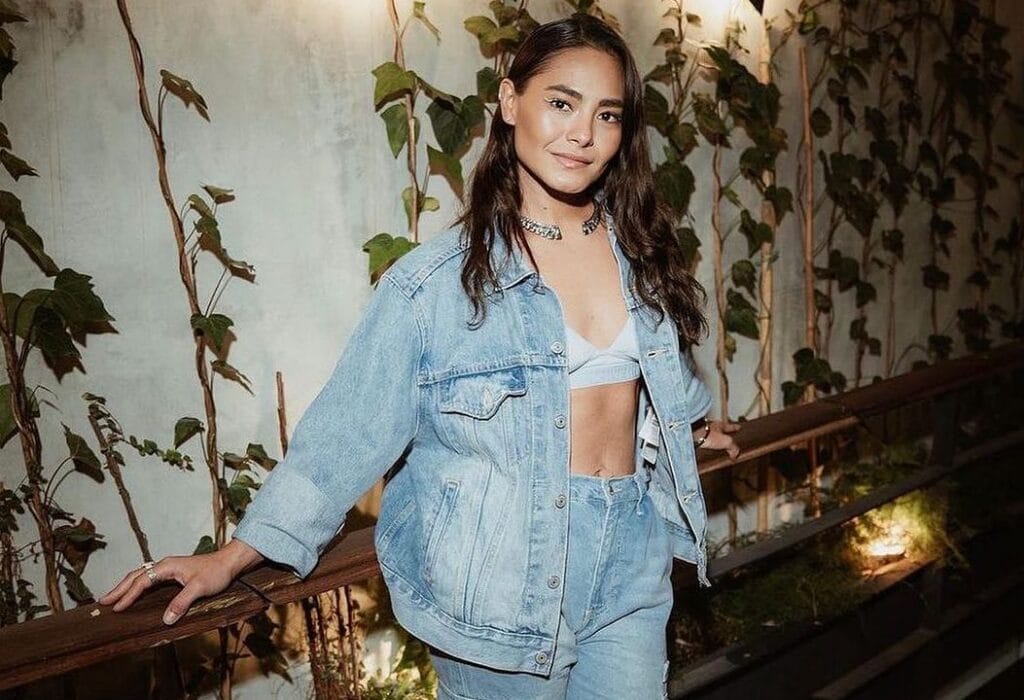 GLAAD contributor Enrique Torre Molina is a diversity, inclusion and LGBTQ+ community activist, speaker and consultant working with companies, nonprofit organizations, government agencies and media. He co-founded Colmena 41, co-hosts the “Mafia Gay” podcast and lives in Mexico City.
GLAAD contributor Enrique Torre Molina is a diversity, inclusion and LGBTQ+ community activist, speaker and consultant working with companies, nonprofit organizations, government agencies and media. He co-founded Colmena 41, co-hosts the “Mafia Gay” podcast and lives in Mexico City.
LEER EN ESPAÑOL
The 33-year-old actress Mabel Cadena has one of the most exciting and diverse careers of her generation: she grew up in Veracruz, Mexico, and pursued a Bachelor’s Degree in Acting at the prestigious CasAzul school. She played Amada Díaz in Dance of the 41 (El baile de los 41), a moving and complex role as a woman married to a queer man, in a film that portrays one of the most well-known episodes in Mexican LGBTQ+ history. During her preparation for the role of Namora in Black Panther: Wakanda Forever, she broke the record for time without breathing underwater, surpassing Tom Cruise.
After a summer in which she finished filming the Netflix series Bandidos and in which we saw her as a guest judge on the first season of Drag Race México, we had this conversation:
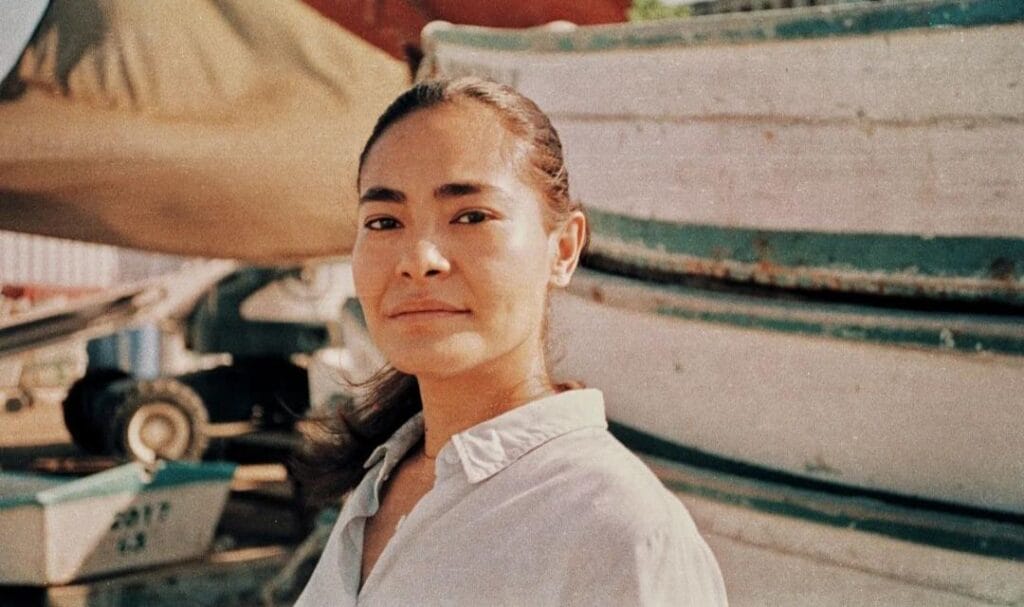
Photo credit: IMDB
When you were younger, what did you see on a screen or on stage that inspired you to pursue acting?
I don’t know why, but it was Marcelino, pan y vino [laughs]. My grandparents took me to see a lot of musical theater when I was a child. After having seen that play, something so strong remained in my body that I came home and said: I want to be an actress, help me, because I want to learn to replicate those types of emotions that seeing it generated in me. I don’t know if a play can change your life, but it changed me.
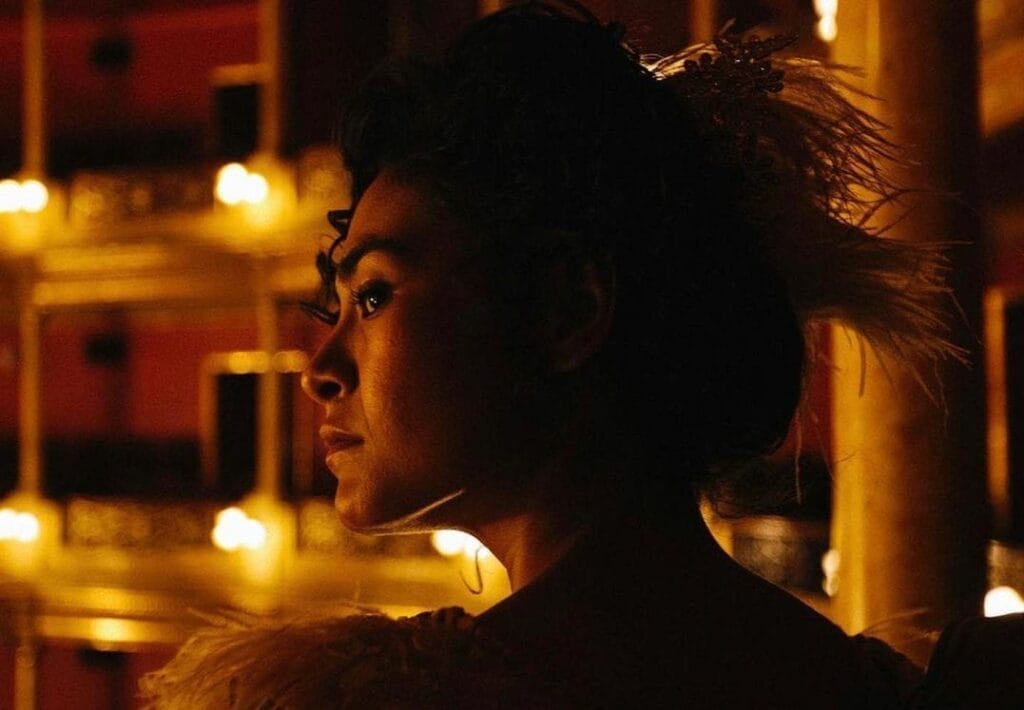
Photo credit: Instagram (@mabel__cadena)
You have participated in campaigns that promote diversity, projects such as the 10 women podcast on gender violence, and on social media you talk about LGBTQ+ pride. But you have also said that it was not easy. How did you find empowerment that is necessary to talk about the issues that matter to you?
I have never doubted my being an actress, but I have questioned how to be an actress. We’ve all been told we can’t do something, and when my most visible film, Black Panther, came out, many of my schoolmates wrote to me to apologize for the way they had treated me for a long time. And I don’t say this from a place of victimhood. When I moved to Mexico City, I had a way of speaking that for them determined my origin and my history, but also my future. I have learned, through my characters, how to feel empowered.
The Mabel who did not know how to inhabit a body with masculine energy or a voice deeper than normal was able to reconcile herself through the character of Ramira in Asphalt Goddess, and became stronger and much more empowered when I was able to do Dance of 41 and discover another type of energy. Acting is giving me the opportunity to go places that people tell me I can’t.
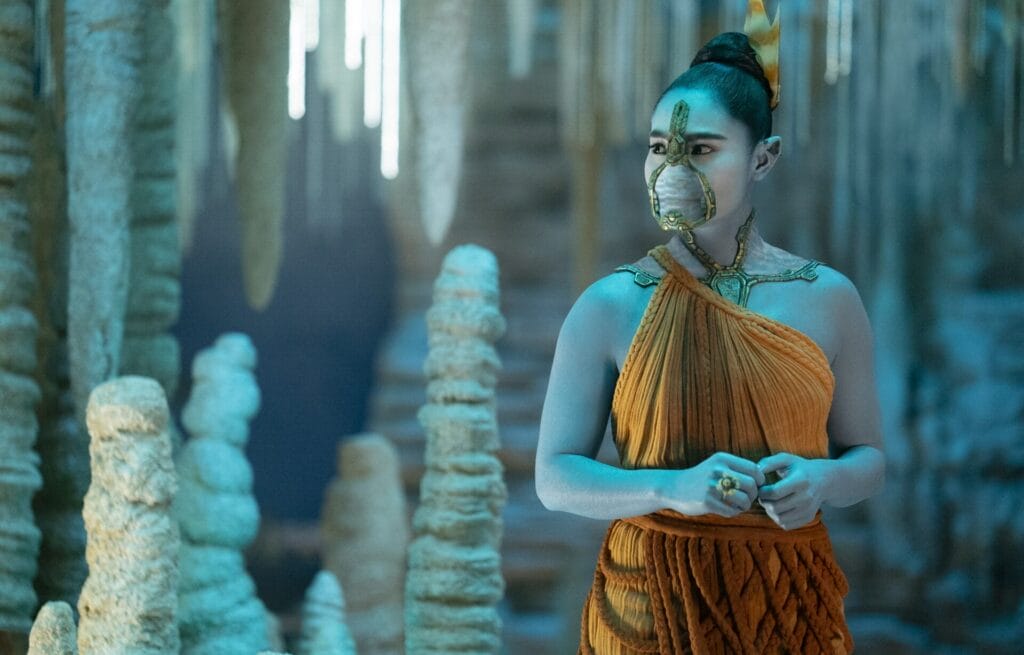
Photo credit: Instagram (@mabel__cadena)
In term of my story, Black Panther broke down a lot of things: the Mabel who didn’t study English and didn’t know how to speak English when she filmed that movie and didn’t even have a tourist visa… I think my biggest fear was getting to set, and having the director say “I was wrong. It’s not you. You’re short. You don’t look like a strong superhero should look. You don’t speak English.” And all I received was love. Namora joined my other characters who told me: dude, we raised our voices through you, but now you have to raise it for yourself, so start defending your way of loving and your way of being.
It has been a process of a lot of love and pain and happiness. I am at a point where I already have my own conversations with the people I love, with my family, with my friends, with my partner. And as an actress I am losing the fear of just having fun and having a good time, because I had this idea that to do art you have to do profound things. But there are ways to raise your voice and have a good time.
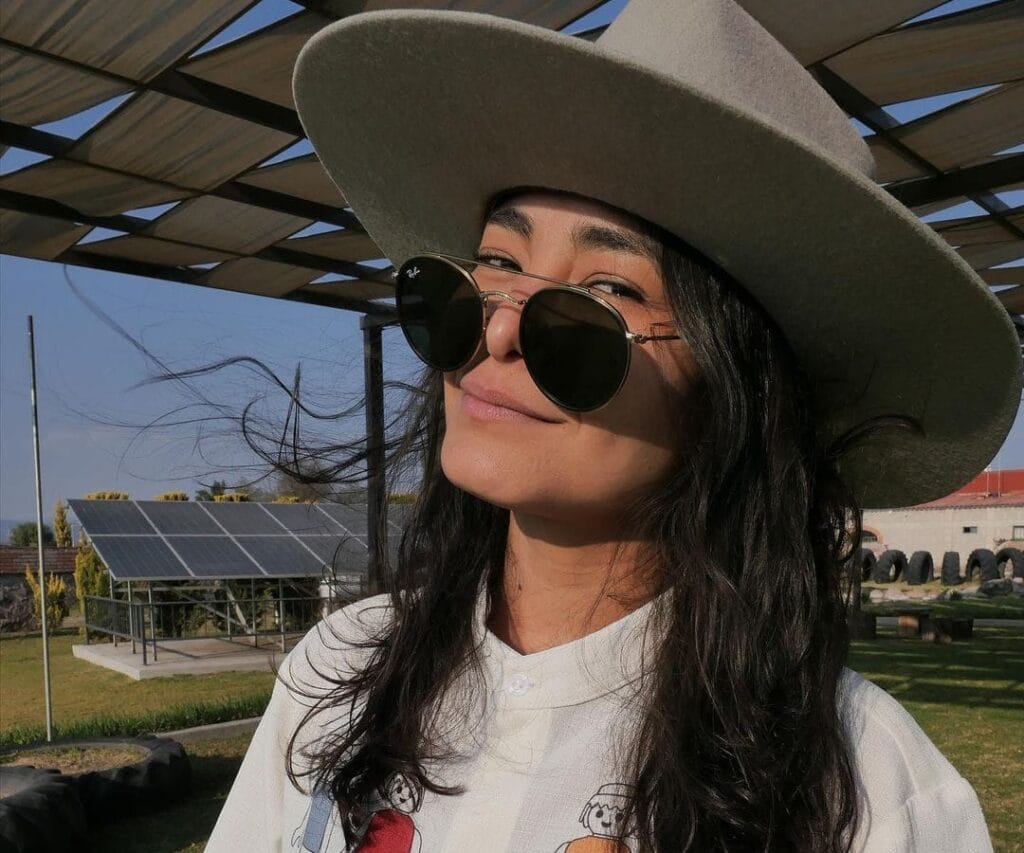
Regarding the representation of people of color and LGBTQ+ characters in film and television, what do you think of the current panorama and what should be different?
I feel very hopeful because I read more and more scripts where there is a diversity of human beings. It is about each of us being able to have a worthy place in fiction. Representation allows you to identify with different futures. That is the most important thing about being able to tell stories that make any type of issue visible – LGBT, racial or whatever it is.
I was just telling my partner recently: it must be crazy to go to high school right now, in 2023, and be gay or fall in love with someone of the same gender. My head exploded thinking about what my life would be like today if I went to high school with this context of racial representation, LGBT representation, freedom in many ways, and how that can impact your life. I have faith that in this industry we can tell stories that allow others, despite the pain, to have a future before their eyes. And if that means living my life as I think it should be and defending it, then that’s also what I want to do. Live it and show it. When one raises one’s voice, we all flourish and generate motivation and empathy for the other. That is one of my life motivators.

